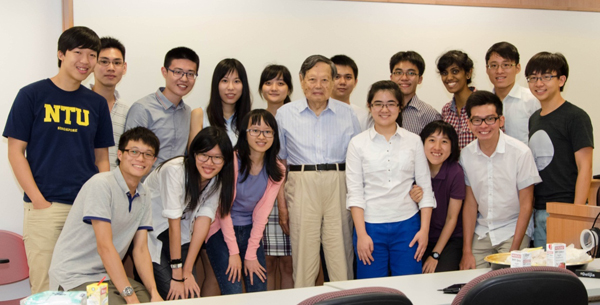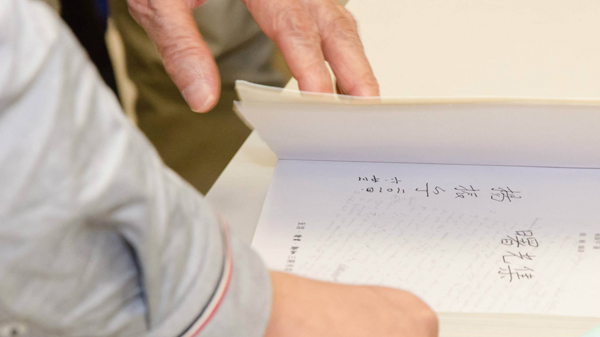All I knew about Prof CN Yang, I learnt from a 20-second glance at his Wikipedia entry before my CN Yang Scholars Programme admission interview.
Fast forward a year and an email arrives in my inbox, saying that Prof Yang is going to be in Singapore for a conference and that an informal discussion will be arranged for students from the CN Yang Scholars Programme.
Many of us leapt at the chance to meet the namesake of our programme and hopefully gain a couple of IQ points (in case genius somehow diffuses).
The session with Prof Yang began with how he chose theoretical physicist Edward Teller as his doctoral advisor and how one can go about finding good advisors.
Prof Yang believes there are two types of advisors. The first kind provides much guidance and advice, while the other gives you more freedom to explore. He also said that there are usually two types of students – those who thrive under close supervision, and those who thrive when they’re let loose. The type of supervisor you choose thus depends on your own personality, with both types having pros and cons.
He went on to tell us he initially wanted to write his thesis based on experimental physics and that during one of his experiments, he tried to bend copper tubing with his bare hands. Puzzled that he couldn’t get the tubing to curl neatly, he asked a classmate for help, only to be told that there was a simple tool for this purpose. He laughed at how bad an experimentalist he was, and it was a relief for me to find out that even geniuses start out fumbling in the lab.
While Prof Yang didn’t go on to do his thesis on experimental physics, his strength in theoretical calculations was valued by others in his lab, and he would help his experimentalist classmates with theory, whilst they would help him with his experiments. Though Prof Yang wasn’t destined for the experimental lab, he eventually received his PhD. His advisor, Edward Teller, sponsored his PhD studies on the condition that he write up one of his theoretical conference papers as a thesis.
Intrigued by Prof Yang’s experience as a graduate student, I asked him how he knew which areas of research to focus on. His reply was that after going through the school system and university, we should have an inkling of what we like and what we’re good at. Realising our inclination and pushing towards it is an important step in research or indeed any journey in life. He stressed that we should strive to follow our own interests instead of following what our supervisors are doing, as doing what interests us the most is more likely to end up being worthwhile.
The final question posed to Prof Yang related to his own views on the state of theoretical physics today. He said that in the past, it was easier for graduate students to deeply understand a field as there was less knowledge to work on. Now, as our knowledge has increased, physics has become much broader, and it’s more difficult to master even sub-fields. He said that though the “information explosion” makes mastery much harder, it’s also given us the opportunity to work on many more problems, which can be tackled in new ways with innovative technology.
He cited the example of the MRI scanning machine, which was developed using a new approach to nuclear magnetic resonance. The imaging technology was used to analyse chemical compounds, but when applied in a new way, resulted in a significant advancement for medicine. He also gave the example of the hearing aid he was using, saying that novel technology borne from a distinct line of acoustic research had made such aids significantly better and not just cosmetic improvements of older models.
Concluding our session, Prof Yang said that that the scientific environment today is very different from the past, and that while we may face more obstacles in attaining depth and mastery, we also have the opportunity to solve many more interesting problems and to do so from many different angles.
As a memento of this inspiring session, we gathered for a group picture with Prof Yang…

… with one of us scoring an autograph from the famous professor!
Comments? Email us at hey@ntu.edu.sg



